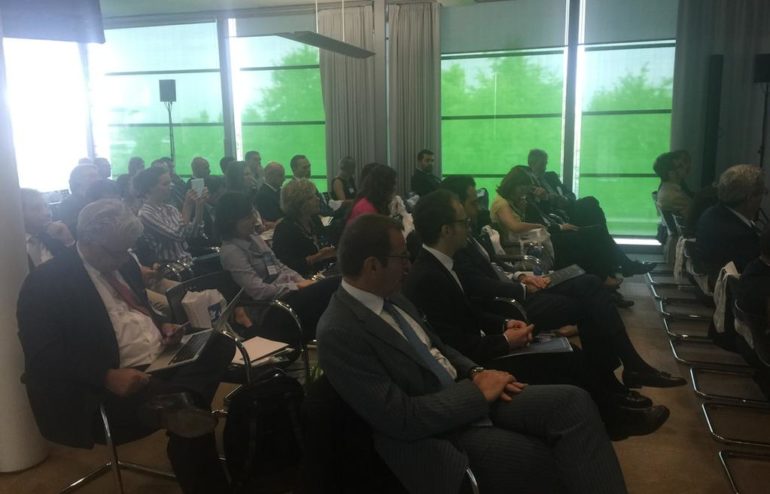Information means efficiency in the process of credit recovery
One hundred people have filled the conference room of PwC in via Monte Rosa in Milan for the conference “The information, a disruptive aspect in the processes related to credit”, organized by AZ InfoCollection and PwC. The guests of the roundtables are specialists in the sphere of infoproviding, professionals in privacy issues, representatives of the world of credit and industry in each of its branches of business. The objective is a direct comparison on the contents of the market of infoproviding, which is showing progressive sensitivity to the themes of information in support of business and strategic processes.
“The impression we got from the people in the room, judging by the questions and the performance of the round tables – said Carmine Evangelista, CEO of AZ InfoCollection SpA – is that the cues offered by today’s discussions go in depth on the various fields that constitute the chain of credit and information, realities which are usually taken into consideration in a separate matter, but which instead are highly dependent of each other. Today, for example, investors require from operators of the credit increasingly high rates of return. To achieve these results, the information is central, it is a strategic asset because it directs the processes of credit recovery making them more efficient, improving their accuracy“. So, for example in the management of portfolios of non-performing loans, those who manage the data of such portfolios may use to their advantage the clustering of information that allows the sharing of practices in different types. In this way, the groups that are created will identify a well-defined type of debtor, and allow for collection as a targeted action, respectful of the personal situation of the debtor. “The debt of a pensioner is different from the debt of a person with a job and an income, or even that of the unemployed – said Evangelista – the availability of this type of information allows operators of credit to act intelligently moving towards various targets and to manage the assets on time, with benefits also in the scientific measurement of the actions put in place“.
The discussions in the morning were also focused on the issue of privacy protection and the technological tools to support the information and processes related to credit. In the first panel it was stressed firmly that the collection of data is legitimate when there is a right to credit: any resistance to this statement is cultural and systemic, not related to legislation. In the second panel instead we explored new frontiers of innovation to support the processes of credit, in particular what now offers the technology to handle the masses of data and turn them into usable information. In this regard, the discussion was focused mainly on the opportunities that big data and applications of Fintech can create for this market, especially using them in the systems related to the semantic analysis of the information.

